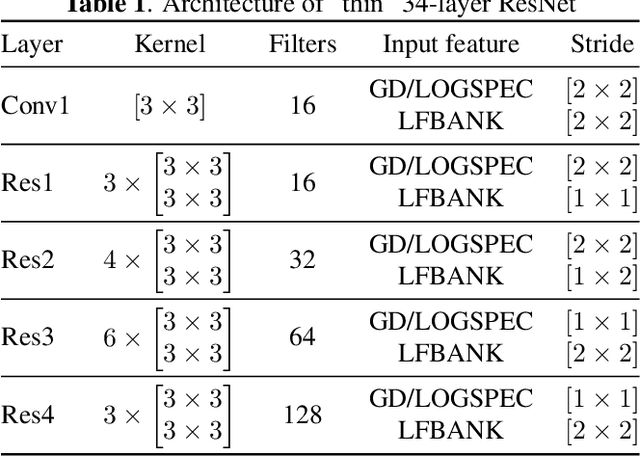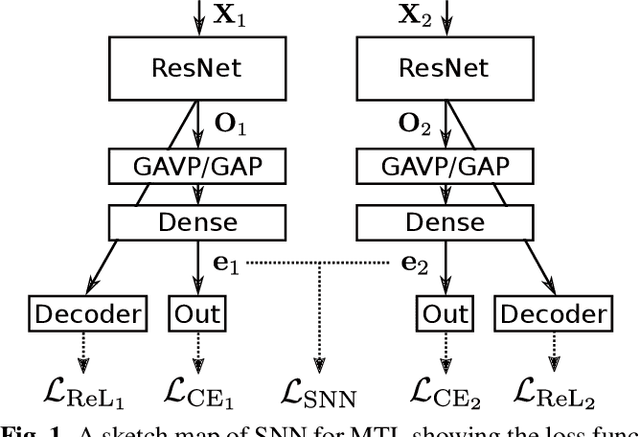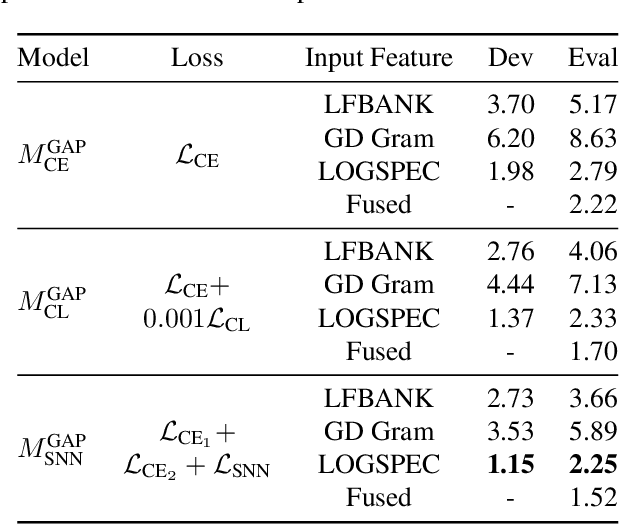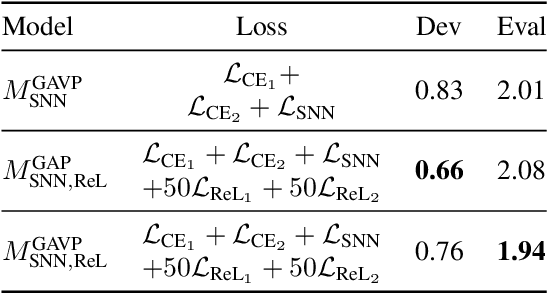Multi-Task Siamese Neural Network for Improving Replay Attack Detection
Paper and Code
Feb 16, 2020



Automatic speaker verification systems are vulnerable to audio replay attacks which bypass security by replaying recordings of authorized speakers. Replay attack detection (RA) detection systems built upon Residual Neural Networks (ResNet)s have yielded astonishing results on the public benchmark ASVspoof 2019 Physical Access challenge. With most teams using fine-tuned feature extraction pipelines and model architectures, the generalizability of such systems remains questionable though. In this work, we analyse the effect of discriminative feature learning in a multi-task learning (MTL) setting can have on the generalizability and discriminability of RA detection systems. We use a popular ResNet architecture optimized by the cross-entropy criterion as our baseline and compare it to the same architecture optimized by MTL using Siamese Neural Networks (SNN). It can be shown that SNN outperform the baseline by relative 26.8 % Equal Error Rate (EER). We further enhance the model's architecture and demonstrate that SNN with additional reconstruction loss yield another significant improvement of relative 13.8 % EER.
 Add to Chrome
Add to Chrome Add to Firefox
Add to Firefox Add to Edge
Add to Edge